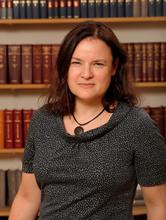The ‘Socioeconomic Rights in History’ Workshop, organised by Leverhulme Trust International Network and hosted by Harvard Law School, will be looking at arguments for and against protection of socioeconomic rights both in a historic and contemporary context.
Professor Novitz’s paper seeks to examine the relevance of freedom of association as a socio-economic right in the particular context of the challenge presented by American and British nationalism to international structures for the protection of human rights.
My paper begins with attention to the emergence of freedom of association as a right of ‘citizens’ in countries of the North. I am interested in the gradual increase in the ever-widening compass of people that were able to claim this entitlement (from the 18th century onwards), which gradually extended from servants to women to migrant workers. The recognition of that entitlement within domestic labour markets (and its inclusivity of those who had been marginalised and disempowered) had both political and economic effects.
Entitled, ‘Labour law, freedom of association and their transnational dimensions’ Professor Novitz’ paper examines whether expansion of the right to freedom of association in the North can be linked to simultaneous forms of empire, colonialism and trade controls operating in the South – and whether endeavours to promote international human rights led to a neutering of that right, impacting the relevance of the past for voice in contemporary global labour markets.
The international right to freedom of association has never, arguably, been as wide as the right of citizens to freedom of association in countries such as Italy and Germany and, indeed, has arguably restricted trade union entitlements in those countries, as well as in the UK and US.
It is suggested that, perhaps ironically, it is the destruction of meaningful freedom of association for workers in the North, and their consequent frustration at their disempowerment, that is allowing modern forms of nationalism to flourish. The more painful irony is that such nationalism is likely to strip away not only at the universalism of international human rights, but even further reduce national-level inclusiveness of access to freedom of association.
‘Arguments for and against Socioeconomic Rights, Past and Present’ will be taking place at Harvard Law School, March 20-21, 2017. Professor Novitz will be joined by fellow Keynote Speaker, Frederick Cooper, Professor of History and New York University. Professor Cooper will be discussing Social Rights and Empire.
